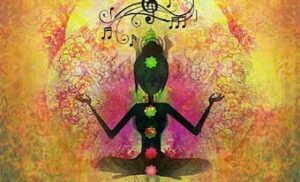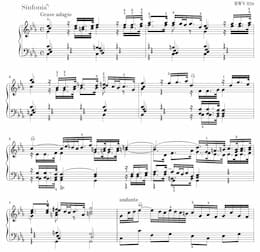A psychologist describes her work with musicians navigating the impacts of the pandemic

© a-davies.medium.com
Psychological counselors working with musicians receive valuable and intimate insights into the inner lives of these artists. We are privileged to hear deeply private and intimate expressions of fears, insecurities, uncertainties and rages that the client might not dare express to colleagues or even to their inner circle. The tasks of a musician’s counselor normally involve helping the client understand, interpret and navigate unsettling and confusing internal states, helping clients discover solutions for entrenched patterns of behavior that have become counterproductive and oppressive (patterns within themselves and within the systems in which they engage), and being a co-traveler, witness, and confidant during moments of significant change, transition, and growth.
Though the work of a psychological counselor depends on an open and honest dialectic exchange with his or her clients, classical musicians are known to be an infamously stoic bunch. Beethoven, in his Heiligenstadt Testament, expressed anguish in the idea of being: “subjected to the danger of letting my condition [encroaching deafness] be observed”. The stoicism may arise from processes of socialization in musicians’ cultures: teachers pass onto students the implicit or explicit demand to shrug off difficulties, to overcome physical, emotional, and technical challenges with the appearance of ease, and to work harder than the body and mind are willing or able to. A form of ‘virtue-signaling’ amongst musicians is displaying oneself as a labor exhibitionist: the culture celebrates those whose professional workloads would exhaust the most ardent overachiever; and success-signaling often seems to be a requirement for remaining viable and employable. Exhaustion is normalized, the crass over-spending of finite psychological and physical resources is expected and often demanded.
The ability to succeed in professional musician contexts is contingent on this stoicism, it is an unwritten contract within the profession. From the viewpoint of a mental health professional, it is an obsolescent social relic that has resulted in musicians not seeking help until problems have become staunchly entrenched and bewilderingly entangled, making the therapeutic and counseling work much more difficult and often less effective than it would be, had it been sought earlier.
If there is some ‘silver lining’ to the COVID-pandemic for musicians, my hope is that it breaks apart this culture of stoic non-disclosure of the professional difficulties and systemic inequalities experienced within musician communities.
Musicians responding to the Pandemic

Heather O’Donnell
“The entire industry is on life support right now, and no one knows what will happen when this life support is withdrawn.” – a freelance violinist
All around the globe, the pandemic has caused changes and disruptions to our ways of life and assumptions about our individual and collective futures. In this regard, musicians are no different than any other group. We find ourselves in a time of fundamental change, due to the pandemic as well as other massive geopolitical paroxysms. This is particularly destabilizing and upsetting for a branch that tenaciously clings onto precedent and is often obstinately resistant to change: the classical music industry.
Musicians are bearing the weight of this change. Dr. Helmut Möller, psychoanalyst and founder of the Kurt-Singer-Institute for Musicians’ Health in Berlin wrote to me about working with clients during the pandemic: “Many musicians have been occupied with thoughts of completely giving up on this profession. They have also felt little desire to maintain a practice workload. The repeated cancellations have led to depressive moods, especially since contact with colleagues was strongly limited. It was often conveyed to me that these musicians had learned nothing else than how to navigate their instruments, and sensed that a large part of their identity was absorbed into this activity.”
Whereas all musicians have been affected in some way by the pandemic, two subgroups within the classical industry appear to be particularly vulnerable during the pandemic: freelancers and young musicians starting their careers.
Freelancers’ heightened vulnerabilities
Freelancers have chosen artistic autonomy over stability. Very rarely do these two things go together in artistic professions. The social consequences of the pandemic have pervaded countless levels of freelancers’ professional lives, causing a myriad of disruptions and uncertainties. One composer described these COVID-induced disruptions as a series of chain-reactions: in the past, traveling to a premiere might result in a chance encounter with an organizer or colleague that could subsequently lead to future collaborations and opportunities. The canceled concert or commission not only affected that one particular source of income, but led to the drying up of the natural flow of interpersonal exchanges, resulting in a lack of professional encounters that normally serve to uphold the accumulation of commissions and collaborations needed to make a living. He, like many other musicians, was grateful for the stipends provided by various political and cultural organizations in Germany. But this was a short-sighted solution, a stop-gap measure to ensure that rent could be paid for a couple of months. The uncertainty remains.
A freelance cellist expressed relief that the pandemic: “makes it clear to everyone what it’s like to live with uncertainty, anxiety and depression. I no longer have to cover it up for fear that people just won’t understand the fears and insecurities. Nowadays, everyone ‘gets’ it. It’s a relief not to hide that anymore.” In the context of the pandemic, success-signaling can seem disingenuous and insensitive. A freelance pianist stated that the pandemic has considerably widened the opportunity gap and levels of financial stability between contractually employed musicians and freelancers. She commented that musicians with secure employment contracts were increasingly “out of touch” with the insecurities and instabilities of freelancers. And a freelance violinist confided: “I’m very skeptical about what’s going to happen in the next years. Right now there’s a lot of money being thrown at the scene, especially here [in Germany]. And I don’t think we’re going to know for the next few years how that will pan out. At some point, we’re really going to understand what happened structurally to the music scene, but we’re not going to know it until it’s been damaged beyond repair. The entire industry is on life support right now, and no one knows what will happen when this life support is withdrawn.”
Young musicians are facing an insecure future

© Kai Bienert
A study conducted by the German Music Council and the Center for Cultural Research concluded in February of 2021 that 20% of respondents were seriously contemplating a transition out of their music career. A majority of these respondents were musicians in the early stages of their careers or those finishing their studies. A pianist stated: “Since the beginning of the pandemic, the situation has been especially difficult in terms of performing, realizing projects and developing plans of any kind. I, like many of my colleagues, was exactly at the point in which I was beginning a performance career when the pandemic began. As we were not yet ‘established’, we weren’t offered new dates for the canceled concerts, and the few opportunities that had the potential to help us to grow are now gone. It has become extremely difficult to get new concert dates, and the situation remains very critical.”
I’ve heard these kinds of sentiments expressing insecurity and doubt in the future countless times in the past two years. They lead to fundamental questions about how one in a ‘helping profession’ can best be of service in these unusual and precarious times.
Psychological Counselors’ sphere of influence
Psychologists work largely at the level of the individual for influencing processes of change and transformation. This is because this level of the individual (and the microcosm surrounding him or her: close family and friends) is the only arena in which the counselor, like most of their clients, hold any power of influence. Psychiatrists and psychologists have historically borne the brunt of (often justified) criticisms for overemphasizing individualistic values which might serve to reinforce unjust social and political practices, upholding an implicit narrative: ‘If you, the client, are not succeeding or thriving within this system, the sole responsibility lies on your shoulders.’ There exists a danger in clients misinterpreting the suggestion to exercise power and autonomy only within the area in which it is present for most of us – the personal realm – as a scold: you should be able to change your situation by the power of your own will, you must be able to ‘pull yourself up by your own bootstraps’. Classical musicians are particularly sensitized to receiving and internalizing should and musts. The training and socialization within the field consist to a great degree of ‘you should’ and ‘you must’, much less out of inquiries such as: ‘What is possible for you to do?’, and ‘What do you want?’.
As a psychological counselor, I often use mindfulness practices to help clients navigate difficult emotions or situations. Though I’ve found these practices to be of enormous value – within my own life and in working with clients – I often wonder, especially within the context of the COVID-seasons, to what degree mindfulness practices can truly compensate for a political or social system that is not conducive to well-being. Working with musicians who are exhibiting signs of dysphoria or heightened anxiety, it often occurs to me that unease, dissatisfaction and anxiousness are normal (or even sane) responses to the current societal burdens thrust on these musicians. Ronald E. Purser, in his book McMindfulness, examined the potential for misuse of appropriated mindfulness practices for upholding inequitable systems, stating:
“Anything that offers success in our unjust society without trying to change it is not revolutionary – it just helps people cope. However, it could also be making things worse. Instead of encouraging radical action, it says the causes of suffering are disproportionately inside us, not in the political and economic frameworks that shape how we live.”
No matter how much and how intensively one meditates, one cannot meditate away structural inequalities and inhumane professional cultures. In addition to exercising the power to change within the personal realm, we should all – counselors as well as musicians – be looking honestly at systemic cracks within our industry structures, and what we can do to influence or change them.
Musicians tend to be impressively resilient, I am continually moved and awed by their ability to find solutions, to weather difficult times, and to stay psychologically afloat and even buoyant in the face of grave uncertainties. Perhaps this can be attributed to a natural selection process within the profession that ensures that those who survive difficult years of training and the securing of one’s professional place have developed (or are naturally endowed with) a certain toughness, grit, and resilience in the face of adversity.
But Elena Polivtseva, head of policy and research at IETM criticizes arts funding institutions and policy-makers that place the onus for tackling the COVID crisis solely on the shoulders of artists by calling on these artists to continuously conjure up their innate resilience: “They assume that artistic communities should use all of their creativity, flexibility and agility to adapt to harsh realities, inventing their own solutions to cope with the lack of public support…Although resilience as such is definitely not alien to the sector, considering it as the only tool to safeguard viability can however seriously affect the freedom, autonomy and integrity of artistic endeavor.”
There’s certainly much work to be done on all levels in order to ensure that our industry, after the worst of COVID has passed, becomes a healthy biotope that enables musicians to exercise their full power of expression. I’m confident that musicians, and those that support them, will be able to use their hard-earned resilience to break away from archaic structures and create a better environment for themselves and their colleagues. Some of this work functions on the individual level, looking within for possible change processes, and some of the work will happen because we hold artistic institutions, funders, and governments accountable for upholding their mission in supporting artistic endeavours.
As the old German song celebrates, musicians are a hardy bunch:
Himmel und Erde müssen vergeh’n,
aber die Musici, aber die Musici,
aber die Musici bleiben besteh’n.
Heaven and earth must pass away,
but the musicians, but the musicians,
but the musicians remain.
Heather O’Donnell is a psychological counselor and the founding director of TGR The Green Room in Cologne, as well as a former professional pianist.
For more of the best in classical music, sign up to our E-Newsletter
Bach and Resilience

